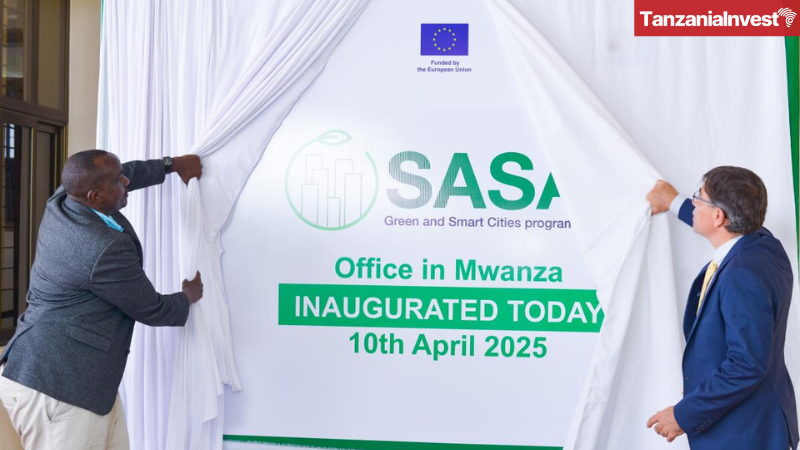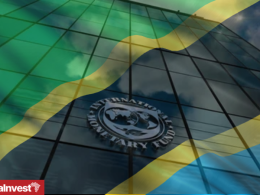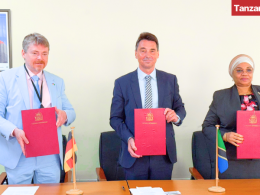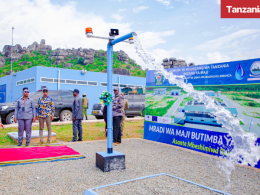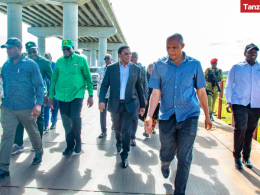The European Union (EU) and its Member States are investing over EUR 325 million (TZS 813 billion) through the Green and Smart Cities SASA Programme to support sustainable urban development in Mwanza, Tanga, and Pemba.
The investment was confirmed during a visit on 10th April 2025 to Mwanza by a delegation of EU and Member State Heads of Cooperation, who inaugurated the Team Europe Programme Office and reviewed ongoing projects supported under the Team Europe framework.
The SASA Programme combines EUR 75 million (TZS 93 billion) in EU grants with EUR 250 million (TZS 720 billion) in concessional loans from EU Member States.
The funds will be used to expand urban services, increase local revenue mobilisation, and support economic opportunities for women and youth in underserved areas.
The newly inaugurated joint SASA office in Mwanza, hosted by the Belgian Development Agency Enabel, aims to enhance coordination among implementing partners on the ground.
The implementing agencies include Enabel, the German Agency for International Cooperation (GIZ), and the French Development Agency (AFD).
The delegation, which included representatives from Belgium, Denmark, France, Germany, Ireland, Sweden, and the Netherlands, visited the Butimba Water Treatment Plant, a key investment under the Lake Victoria Water and Sanitation Project.
The plant currently supplies piped clean water to around 500 residents in the southern part of Mwanza.
SASA has also financed the upgrading of Mwanza’s Mwaloni fish market and the city abattoir.
Speaking at the inauguration, the Assistant Regional Administrative Officer for Industry, Investment, and Trade, Patrick Karangwa, said: “The regional administration will ensure continued collaboration for the impactful use of SASA resources and expertise to bring anticipated results. I’m particularly optimistic that SASA results will be sustainable and replicable to other cities in Tanzania because the program builds on local expertise and resources.”
Marc Stalmans, EU Head of Cooperation, said: “Through the SASA programme, we’re supporting cities to become more inclusive, resilient, and better equipped to meet the needs of their growing populations. This partnership is not only about infrastructure—it’s about dignity, access, and opportunity for the people of Tanzania.”
Tobias Godau, Programme Manager for Water and Climate Change at GIZ, noted: “Mwanza needs climate-resilient urban planning to provide important services to its citizens.
Water supply needs to reduce losses, and sanitation needs to reach its customers.”
Enabel Tanzania Country Director Koenraad Goekint stated: “This initiative represents a significant milestone in our collective efforts to foster sustainable urban development. The Green and Smart Cities Project is not just about modernizing infrastructure; it is about creating resilient, inclusive, and environmentally friendly urban spaces that can thrive in the face of future challenges.”
The EU Green and Smart Cities SASA Program
The EU Green and Smart Cities SASA program aims to support local government systems in delivering services effectively and promoting social accountability, whereby the EU proposes green and innovative solutions to support the basic needs of urban citizens.
It is one of the EU’s Team Europe Initiatives (TEI), which focuses on identifying critical priority areas that constrain the development of a region or country.
These are coordinated by Team Europe, which consists of EU member states—including their implementing agencies and public development banks—as well as the European Investment Bank (EIB) and the European Bank of Reconstruction and Development (EBRD).





